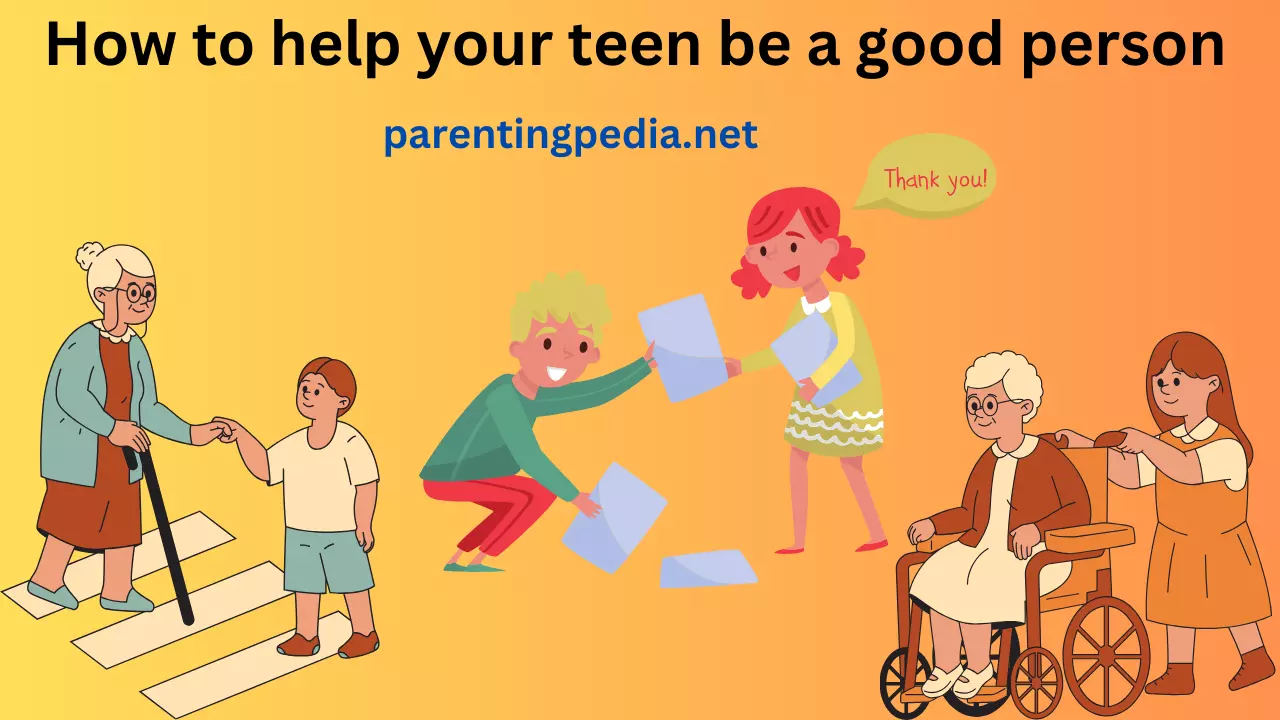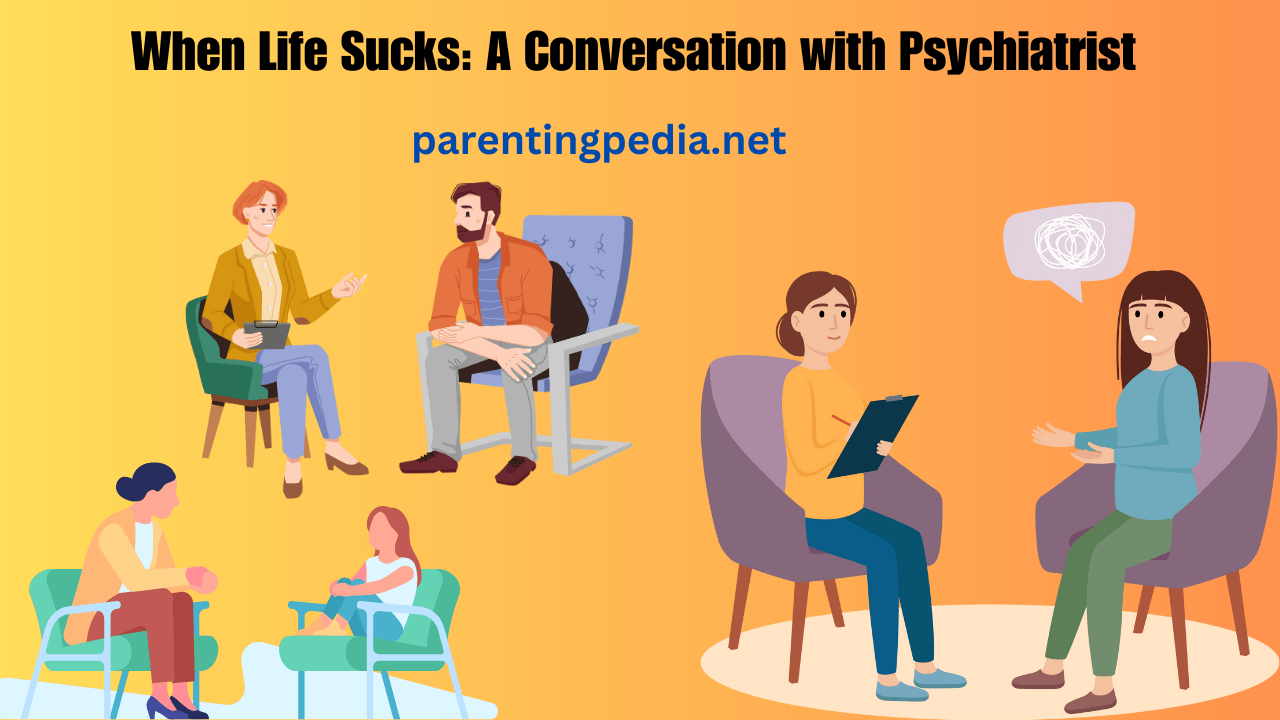You want the best for your teen, right? You want to empower them to become responsible and caring adults. The teen years can be challenging, but also full of opportunity. As parents, our role is to guide them through all the changes and help them learn life skills to prepare for independence.
The truth is, the best way we can help shape our teens into good people is by being good role models ourselves. Our words and actions have a bigger impact than we realize.
When we show them how to treat others with kindness, empathy and respect, they learn from our example. The coming years will fly by, so make the most of this time with your teen.
Get involved in their passions and interests. Keep the lines of communication open. Set clear rules and reasonable consequences. Give them opportunities to make choices and learn from their mistakes. With your support and encouragement, your teen can build a strong foundation for becoming a caring, responsible and good person. The future is bright!
Be a Positive Role Model – Lead by Example to Encourage Good Choices For your Teen
As a parent, you have the biggest influence over the person your teen becomes. Lead by example through your own positive choices and actions.
Teen good behavior.
How you handle teen challenges, treat people, and talk about others says a lot. Make sure your words and actions align with the kind of character you want to see in your teen. Show them how to be kind, courteous and respectful in all situations.
Discuss your values.
Have open conversations about the values and morals that are important to your family. Explain why certain choices are right or wrong. Set clear rules and reasonable consequences when those values are not upheld. Be fair and follow through with discipline when needed.
Praise their efforts.
Provide positive reinforcement like verbal praise, rewards and quality time together when you notice your teen making good decisions or progressing in a positive direction. Let them know you appreciate their efforts and the person they are becoming.
Find shared interests.
Bonding over shared interests, hobbies and passions is a great way to stay connected with your teen. Support them in the activities they care about. Attend their events. Ask them questions and listen when they talk about things that excite them. Strengthening your connection will make them more open to your guidance.
Set a curfew and monitor activity of your teen.
- Be actively involved in your teen’s life by setting clear rules around curfew, monitoring where they go and who they spend time with. Get to know their friends and the friends’ parents. Make your home a welcoming place for their friends to hang out. Staying on top of their activity and whereabouts will help ensure they avoid negative influences and make good choices.
- With patience, understanding and the right approach, you can empower your teen to build positive character and make choices that shape them into responsible, caring adults. But it starts with you – be the role model they need.
Maintain Open Communication – Create a Judgment Free Zone for Honest Discussions With Teen
To stay close with your teen, make communication a top priority. Create an open environment where they feel comfortable coming to you about anything, without fear of judgment.
Have daily check-ins
Take time each day to catch up with your teen and see how they’re doing. Ask open-ended questions about their friends, activities, classes, and interests to start meaningful conversations. Show interest in the things they care about. Even quick chats can help build trust and bonding.
Be fully present when talking
When your teen does want to open up, give them your full attention. Make eye contact, listen without distraction, and be genuinely curious. Repeat back what they said to confirm you understand them. Your teen will appreciate your focus and it will encourage them to keep sharing.
Address issues together
If problems arise, tackle them as a team. Have compassion for your teen and try to see the issue from their perspective. Come up with solutions and compromises together, rather than dictating rules. Your teen will learn problem-solving skills and that you support them, even when times get tough.
Share your experiences too
While it’s important to listen to your teen, also open up about your life. Talk about your interests, friends, challenges you face, and the lessons you’ve learned over the years. Sharing your experiences can help build closeness and allow your teen to see you as a real person, not just a parent. Maintaining open communication and creating a judgment-free zone at home will help ensure your teen feels comfortable coming to you for guidance and support. Make the time to strengthen your connection – it will benefit you both for years to come.
Help Them Discover Their Passions – Support Their Interests to Build Confidence and Responsibility
Help Them Discover Their Passions – Support Their Interests to Build Confidence and Responsibility
- Encouraging your teen to explore and pursue their interests is one of the best ways to help them develop life skills and a sense of responsibility. When teens have passions and hobbies they care about, it gives them motivation and helps build confidence from gaining knowledge and experience.
- As a parent, help facilitate your teen discovering what sparks their curiosity and excites them. Expose them to a variety of activities, clubs, volunteering opportunities and subjects to help them uncover hidden talents or interests. If they show interest in something, offer to help them get more involved by finding local programs or events related to that interest or hobby. Give them opportunities to gain valuable skills through their interests, whether it’s learning to code by building an app, developing public speaking skills in a debate club or gaining mechanical skills by rebuilding a car engine.
- Support your teen fully in pursuing their interests and passions. Help them set goals to work towards and praise their efforts and achievements. Attend their events and competitions when you’re able. Encourage them to take on more responsibility in their interest or hobby over time. Help them see how their passion can translate into a career path or college opportunities. Having your guidance and involvement will make the experience even more meaningful and help strengthen your bond.
- Passions give teens purpose and motivation, as well as a sense of independence and freedom. Helping your teen discover and pursue their interests will empower them with life skills that build confidence from gaining valuable knowledge and experience. With your support and encouragement, their interests can shape them into responsible and well-rounded individuals.
Teach Important Life Skills – Budgeting, Cooking, Laundry, Etc. Set Them Up for Adulthood
Teaching your teen important life skills now will set them up for success as an adult. Focus on budgeting, cooking, doing laundry, and other daily tasks they’ll face on their own.
Budgeting
Have your teen do research to compare phone plans, car insurance, rent costs in your area, and other expenses they’ll soon take over. Show them how to track income, pay bills, and spend within a budget. Give them opportunities to budget for their own expenses to gain real-world experience.
Cooking
Teach your teen some simple, nutritious recipes they can make on their own. Walk them through grocery shopping, meal prep, and cleaning up after cooking. Start with basics like pasta, rice and beans, omelets, and sandwiches. Have them cook 1-2 meals each week to build confidence in the kitchen.
Laundry
Demonstrate how to properly wash and dry clothes, as well as how often different items need cleaning. Have them start doing their own laundry each week, with you available to answer questions as they learn. Show them how to pretreat stains, sort clothes, choose proper settings, and fold or hang clothes after drying.
Other Skills
Additional life skills to focus on include
- -Time management: Help them create schedules and to-do lists. Have them estimate how long tasks will take.
- -Problem-solving: Discuss possible solutions to common issues they may face like disputes with roommates, job or relationship problems. Help them think through pros and cons.
- -Communication: Practice active listening, sharing feelings in a constructive way, and resolving conflicts respectfully. Set a good example with your own communication.
- Giving your teen opportunities to learn and practice these life skills with your guidance will build their confidence and independence, setting them up for success on their own. Make yourself available to answer their questions without judgment as they stumble or struggle. Your support and patience through the learning process will empower them to become responsible adults.
Involve Them in the Community – Volunteerism Teaches Empathy and Builds Character
- Volunteering in your local community is one of the best ways for teens to develop empathy, build character, and become responsible citizens. As a teen, volunteering opens you up to new experiences and exposes you to people from all walks of life. It helps build compassion and understanding for others.
- Look for volunteer opportunities that match your teen’s interests and passions. If they love animals, suggest volunteering at an animal shelter. If they enjoy working with kids, volunteering at a children’s hospital or tutoring program is a great option. There are many places that would appreciate teen volunteers like food banks, homeless shelters, parks and recreation centers, places of worship, museums, and more.
- As a parent, encourage your teen to make a regular commitment to a volunteer role. Having a set schedule helps them develop discipline and accountability. Praise their efforts and the positive impact they are making. Share stories of people who have been helped or lives that have been changed. This reinforcement will motivate them to continue and inspire them to take on more responsibility.
- Volunteering also provides valuable work experience that will benefit them for college applications and future jobs. They can discover hidden talents and interests, all while strengthening their time management, communication, and problem-solving skills in a real-world setting. Guide your teen to reflect on their experiences through discussions or journaling. Help them articulate the skills and lessons they are gaining from their volunteer work.
- When teens give back to the community, it cultivates a sense of purpose and helps shape them into caring, empathetic, and principled young adults. Make volunteering a family affair and set an example through your own participation in local causes you care about. Raising children who contribute value to society in a positive way is one of the greatest gifts you can give. Get started today!
Conclusion
So there you have it, parents. Some tips to help your teen become a good person with a strong moral compass. It may seem like a challenging road ahead, but with your guidance, support, and by leading by example, you’ve totally got this. Stay involved in their lives, have real conversations, give them opportunities to make choices and learn from their mistakes. Help them pursue their passions and support their interests. Most of all, express your belief in them and your confidence that they can become caring, principled, responsible adults. With your help, the future is theirs to shape. You’ve raised them well so far, now empower them to use that foundation to go out and make a positive difference in the world.



